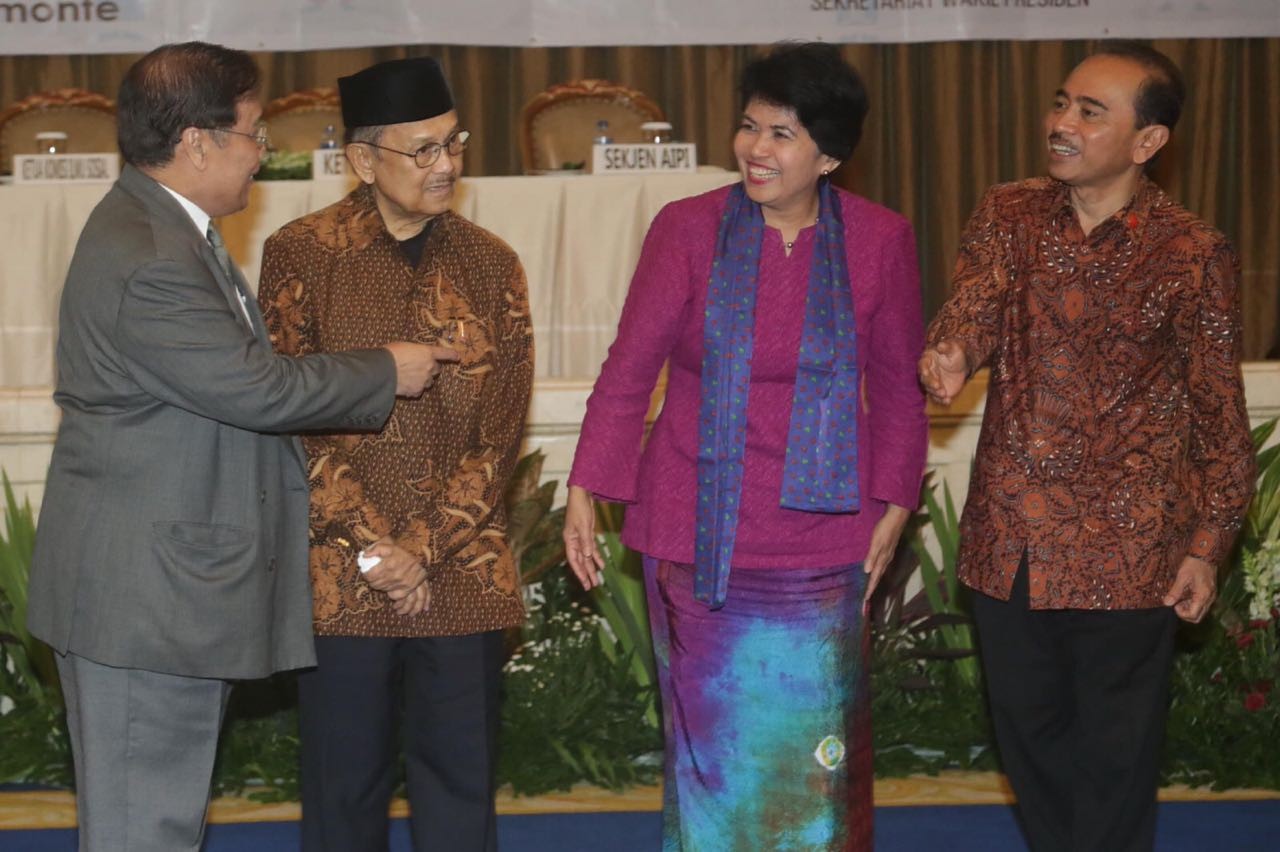ASEAN told to unite in uncertain times
Change Size
 New member: Chairman of the Indonesian Sciences Academy (AIPI) Sangkot Marzuki (left to right), AIPI founder and Indonesia’s third president BJ Habibie, newly inducted AIPI member Dewi Fortuna Anwar and head of the Vice Presidential Secretariat Mohammad Oemar share talks after Dewi’s inaugural speech at the Vice Presidential Secretariat in Jakarta on Thursday. (JP/Wendra Ajityastama) (JP/Wendra Ajityasrama)
New member: Chairman of the Indonesian Sciences Academy (AIPI) Sangkot Marzuki (left to right), AIPI founder and Indonesia’s third president BJ Habibie, newly inducted AIPI member Dewi Fortuna Anwar and head of the Vice Presidential Secretariat Mohammad Oemar share talks after Dewi’s inaugural speech at the Vice Presidential Secretariat in Jakarta on Thursday. (JP/Wendra Ajityastama) (JP/Wendra Ajityasrama)
A
SEAN member states must band together and make the most of existing mechanisms to stay relevant in an increasingly uncertain world, a discussion on regional stability has concluded.
In the face of a seemingly indifferent United States government and the ever-expanding economic patronage of a rising China, ASEAN must rely on its own unity and centrality and the commitment of its individual member states to avoid being pushed around by intervening powers, one panelist argued.
“Multilateralism in an era of global economic hardship is often seen as an obstacle to achieving national interests and I see this trend continuing. At least until [US President] Donald Trump concludes his four-year term,” international politics expert Philips Vermonte said.
Philips, who leads the Centre for Strategic and International Studies (CSIS), urged ASEAN member states to remain pragmatic and rational amid such uncertainty and to seek out alliances that are sustainable.
He noted that China’s stateled investments approach was prone to change along with the country’s leadership, as a result of its top-down political system.
“Unlike China, ties with the US and Europe are business-to-business, so at least [...] we know that they’ll always follow the money,” he said.
ASEAN is often judged by the extent of its ability to remain united in the face of power struggles in its own backyard, especially as the world shifts away from a bipolar system of East versus West.
Critics have been vocal about China’s ability to influence lessdeveloped ASEAN members through economic aid and investments, something the region’s leaders have tried hard to reverse.
Jose AM Tavares, the Foreign Ministry’s director general for ASEAN, insisted that ASEAN had so far succeeded in contributing to regional peace and stability. The challenge now, he suspected, was making ASEAN even more relevant for its people.
Meanwhile, Adriana Elisabeth of the Indonesian Institute of Sciences (LIPI) argued that stronger national resilience would in fact contribute to better regional resilience.
In dealing with the rise of China, the group still has enough influence to urge Beijing to partake in ASEAN-led mechanisms, the panelist asserted.
Adriana suggested the East Asian giant was trying to normalize its continued rise to power through the One Belt, One Road (OBOR) initiative, but believed ASEAN would be able to face threat if it remained united.
Another speaker, Dewi Fortuna Anwar, underlined the importance of not being reactive about the current state of global affairs.
“The only certainty is uncertainty,” said the newly inducted member of the Indonesian Academy of Sciences (AIPI).
Dewi urged ASEAN to look at strengthening its existing mechanisms as a way to create its own certainty in a world full of doubt.
One way of increasing national resilience, she said, was to build a just, inclusive and participatory system.
As such, Dewi suggested that Indonesia lead the region in setting its own agenda and formulating its own responses, stressing the need to “pick our battles.”
Before the discussion, Dewi presented her inaugural lecture as a member of the AIPI, drawing attention to ASEAN’s overall role in maintaining peace and stability in the region, while also criticizing its slow pace in keeping up with the times and addressing emergent challenges.
This year, as the group celebrates its 50th anniversary, Dewi insisted that ASEAN needed to start speaking earnestly about improving its institutions and mechanisms to address difficult questions, such as continuing integration that is often at odds with its non-intervention policy.
“ASEAN is at a crossroads, and it is our collective responsibility to make the most appropriate decisions as a basis for development for another 50 years to come,” Dewi said in her speech.






